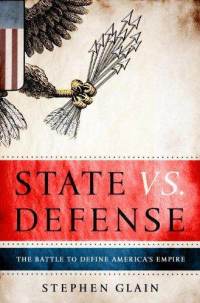On Wednesday morning, the French satirical paper Charlie Hebdo was attacked by three masked gunmen, armed with kalashnikovs, who stormed the building and killed ten of its staff and two police officers. The gunmen are currently understood to be Muslim extremists. This attack came minutes after the paper tweeted this drawing of ISIS leader Abu Bakr Al-Baghdadi.
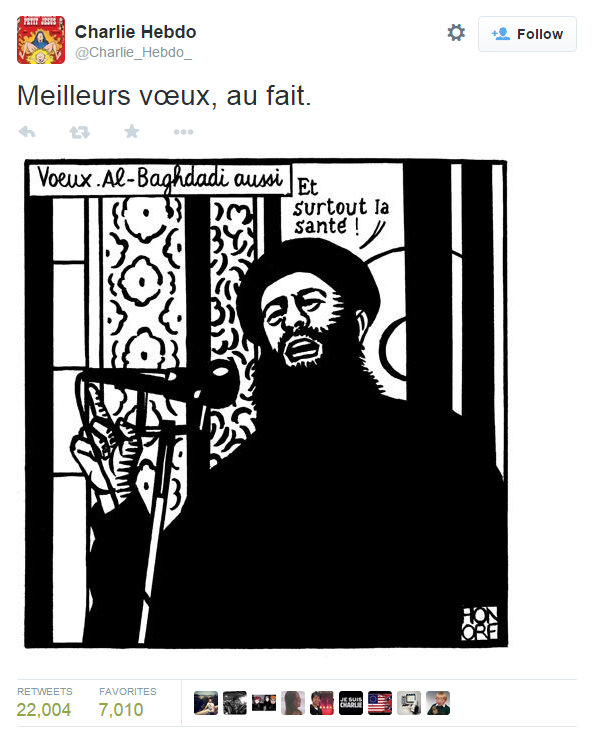
(“Best wishes, by the way.” Baghdadi: “And especially good health!”)
An armed attack on a newspaper is shocking, but it is not even the first time Hebdo has been the subject of terrorist attacks. Gawker has a good summary of past controversies and attacks involving Hebdo. Most famously, the magazine’s offices were firebombed in 2011, after they printed an issue depicting the Prophet Muhammad on the cover.
In the face of such an obvious attack on free speech, voicing anything except grief-stricken support is seen by many as disrespectful. Tom Spurgeon at The Comics Reporter, one of the first American comics sources to thoroughly cover the attack, quickly tweeted this:
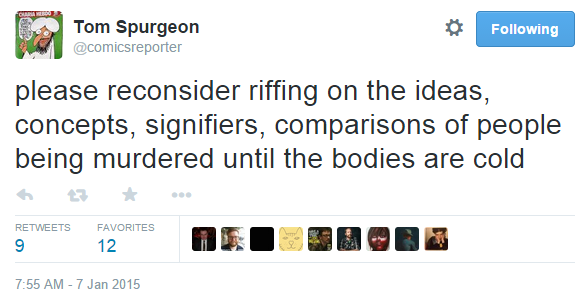
When faced with a terrorist attack against a satirical newspaper, the appropriate response seems obvious. Don’t let the victims be silenced. Spread their work as far as it can possibly go. Laugh in the face of those savage murderers who don’t understand satire.
In this case, it is the wrong response.
Here’s what’s difficult to parse in the face of tragedy: yes, Charlie Hebdo is a French satirical newspaper. Its staff is white. (Update:Charlie Hebdo’s staff it not all white. See note below.) Its cartoons often represent a certain, virulently racist brand of French xenophobia. While they generously claim to ‘attack everyone equally,’ the cartoons they publish are intentionally anti-Islam, and frequently sexist and homophobic.
Here, for context, are some of the cartoons they recently published.
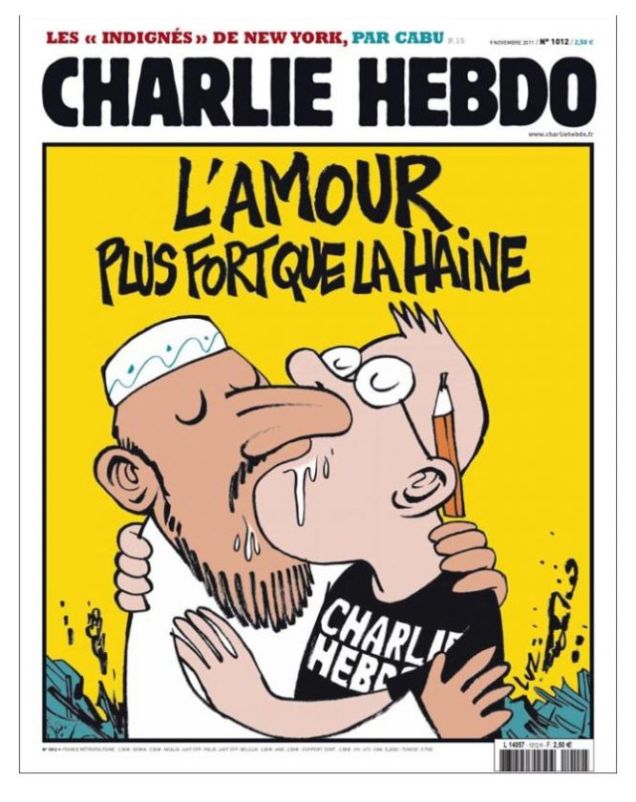
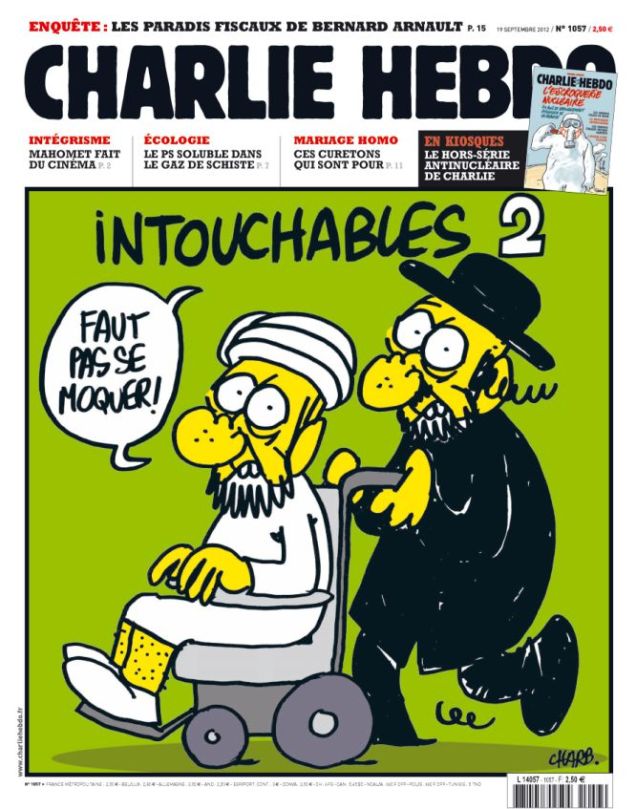
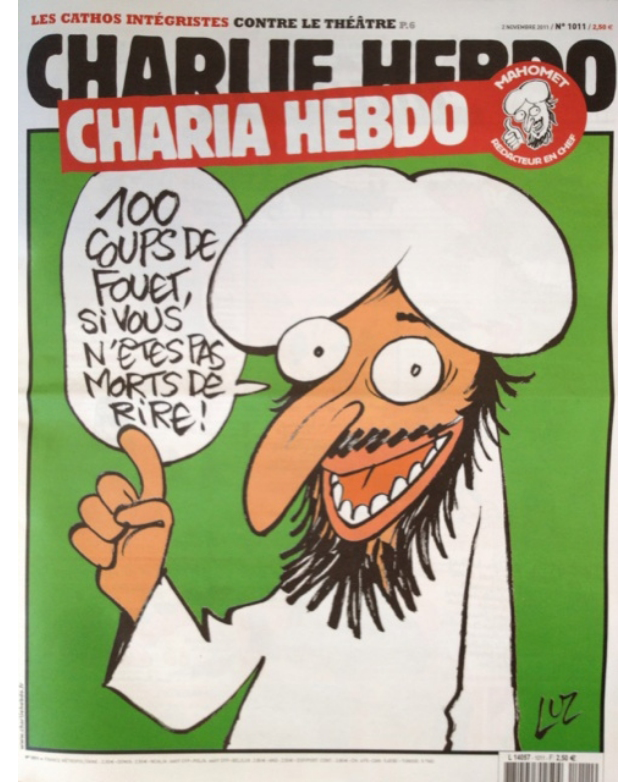
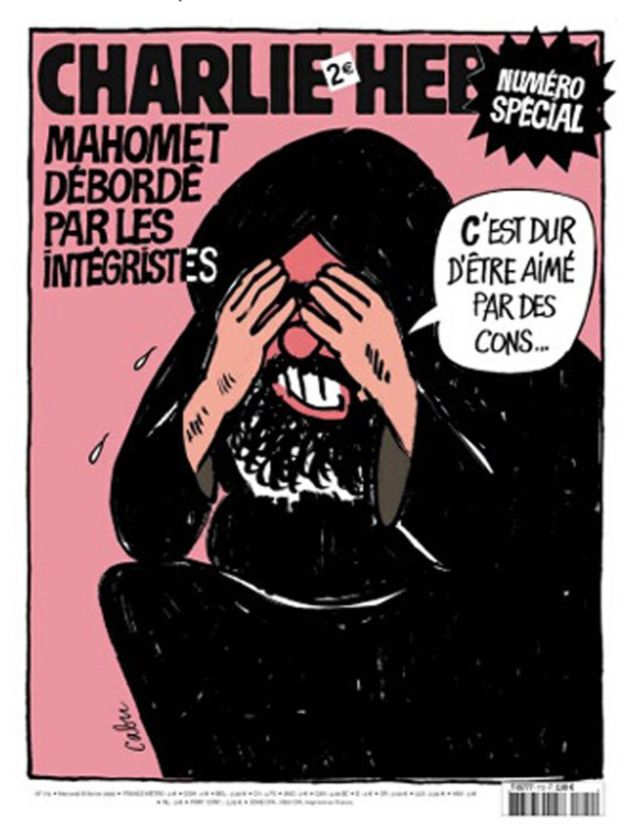


(Yes, that last one depicts Boko Haram sex slaves as welfare queens.)
These are, by even the most generous assessment, incredibly racist cartoons. Hebdo’s goal is to provoke, and these cartoons make it very clear who the white editorial staff was interested in provoking: France’s incredibly marginalized, often attacked, Muslim immigrant community.
Even in a fresh-off-the-press, glowing BBC profile of Charb, Hebdo’s murdered editor, he comes across as a racist asshole.
Charb had strongly defended Charlie Hebdo’s cartoons featuring the Prophet Muhammad.
“Muhammad isn’t sacred to me,” he told the Associated Press in 2012, after the magazine’s offices had been fire-bombed.
“I don’t blame Muslims for not laughing at our drawings. I live under French law. I don’t live under Koranic law.”
Now, I understand that calling someone a ‘racist asshole’ after their murder is a callous thing to do, and I don’t do it lightly. This isn’t ambiguous, though: the editorial staff of Hebdo consistently aimed to provoke Muslims. They ascribe to the same edgy-white-guy mentality that many American cartoonists do: nothing is sacred, sacred targets are funnier, lighten up, criticism is censorship. And just like American cartoonists, they and their supporters are wrong. White men punching down is not a recipe for good satire, and needs to be called out. People getting upset does not prove that the satire was good. And, this is the hardest part, the murder of the satirists in question does not prove that their satire was good. Their satire was bad, and remains bad. Their satire was racist, and remains racist.
The response to the attacks by hack cartoonists the world over has been swift. While many are able to keep pretty benign:
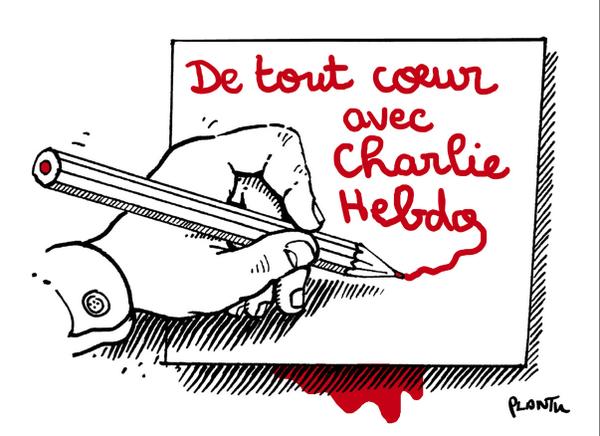
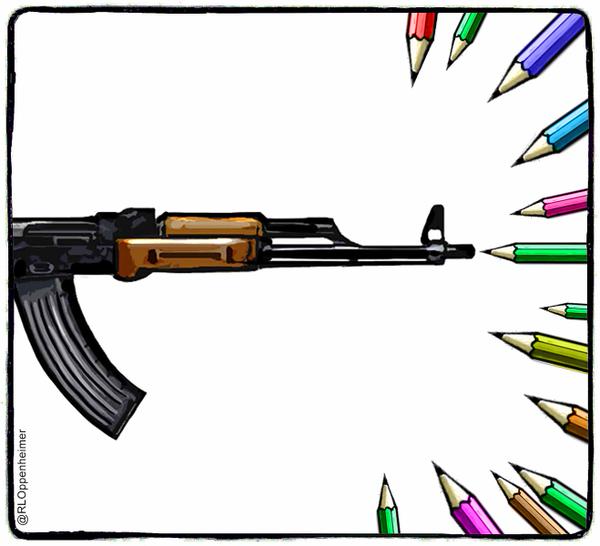
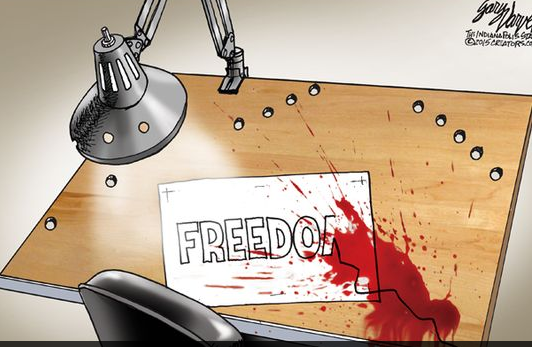
Several of the cartoons sweeping Twitter stooped to drawing hook-nosed Muslim caricatures, reminiscent of Hebdo’s house style.
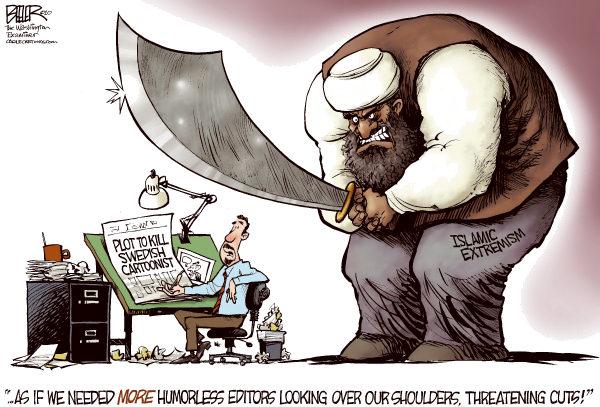
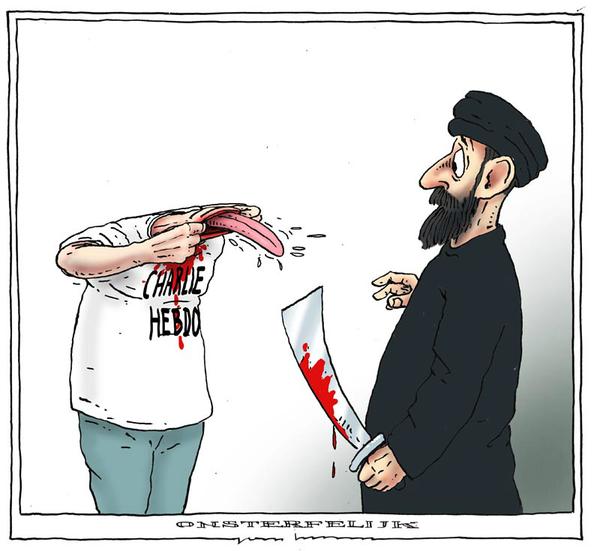
Perhaps most offensively, this Shaw cartoon (incorrectly attributed to Robert Mankoff) from a few years back swept Twitter, paired with the hashtag #CharlieHebdo:
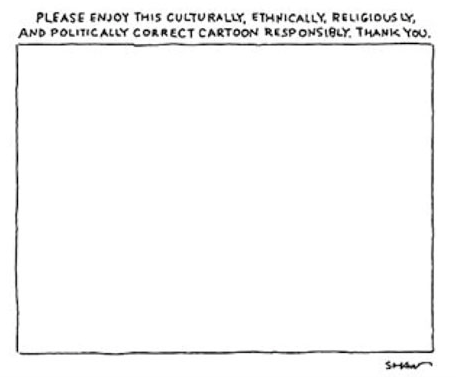
Political correctness did not kill twelve people at the Charlie Hebdo offices. To talk about the attack as an attack by “political correctness” is the most disgusting, self-serving martyr bullshit I can imagine. To invoke this (bad) Shaw cartoon in relation to the Hebdo murders is to assert that cartoons should never be criticized. To invoke this garbage cartoon is to assert that white, male cartoonists should never have to hear any complaints when they gleefully attack marginalized groups.
Changing your twitter avatar to a drawing of the Prophet Muhammad is a racist thing to do, even in the face of a terrorist attack. The attitude that Muslims need to be ‘punished’ is xenophobic and distressing. The statement, “JE SUIS CHARLIE” works to erase and ignore the magazine’s history of xenophobia, racism, and homophobia. For us to truly honor the victims of a terrorist attack on free speech, we must not spread hateful racism blithely, and we should not take pride in extreme attacks on oppressed and marginalized peoples.
A call “TO ARMS”

is gross and inappropriate. To simplify the attack on the Charlie Hebdo offices as “Good, Valiant Westerners vs. Evil, Savage Muslims” is not only racist, it’s dangerously overstated. Cartoonists (especially political cartoonists) generally reinforce the status quo, and they tend to be white men. Calling fellow cartoonists TO ARMS is calling other white men to arms against already marginalized people. The inevitable backlash against Muslims has begun in earnest.

This is the worst.
The fact that twelve people are dead over cartoons is hateful, and I can only pray that their attackers are brought to justice. Free speech is an important part of our society, but, it should always go without saying, free speech does not mean freedom from criticism. Criticism IS speech – to honor “free speech martyrs” by shouting down any criticism of their work is both ironic and depressing.
In summary:
Nobody should have been killed over those cartoons.
Fuck those cartoons.
________
Update by Noah: Jacob initially stated that Charlie Hebdo’s “staff is white”. In fact, CH did have non-white staffers, including copy editor Mustapha Orrad, who was murdered by the terrorists, and journalist Zineb El Rhazoui. Jacob said that his point was that Charlie Hebdo’s chief editor was white, and that “The controversial cartoonists being mourned as free-speech martyrs are all white men.”
For all HU posts on Satire and Charlie Hebdo click here.

